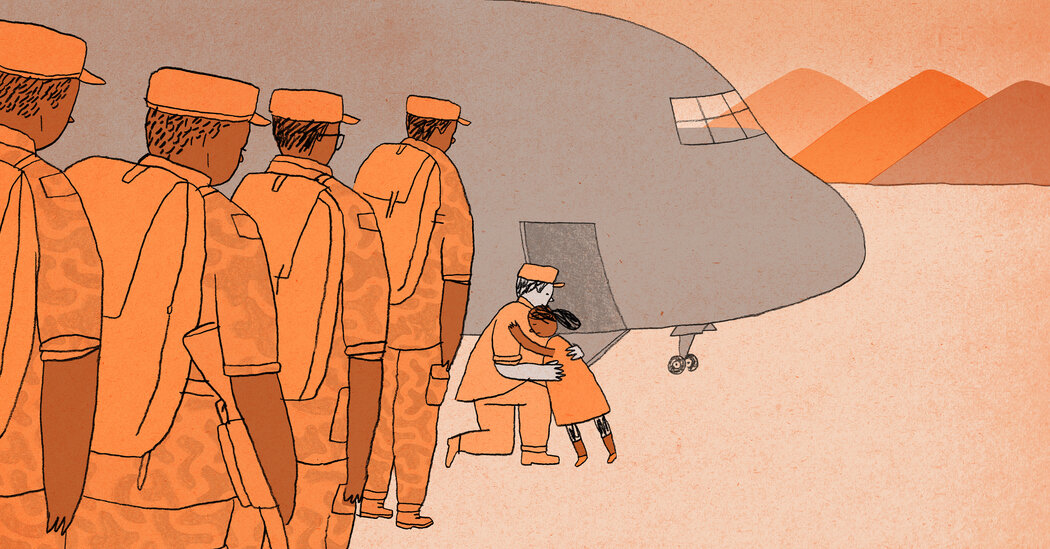
A month after Andrew proposed to me, he and I went to couples counseling, where, in our first session, he said, “If I have to choose between you and the Army, I choose the Army.”
His words knocked the air out of my chest.
Five years earlier, on our first date, he had said (after a few too many drinks), “I’m going to marry you.”
“You’re out of your mind,” I replied.
Apparently he wasn’t. But by the time he proposed, he had been grappling with his desire to join the Army — and my desire for him not to — for two years. I was 27. He was 28. I knew this desire of his was so strong some might say it was a calling. But it wasn’t until he made his blunt declaration in the therapist’s office that I understood the magnitude of his conviction.
I had been raised a pacifist. I had marched against the war in Iraq and was opposed to our involvement in the war in Afghanistan in the way of much of my generation, which is to say, vaguely and comfortably. I didn’t want the man I loved to fight in Afghanistan or any war. I didn’t want to leave New York City for wherever the Army decided to send him, quit the editing job I’d worked so hard to get, or leave my friends.
Well, we just celebrated 12 years of marriage and have two children, a boy, 5, and a girl, 7. So yes, in the end, I relented.
Over the course of our marriage, Andrew has deployed seven times and left on more long trainings than I can count. We moved from New York to Georgia to Washington State. He has missed birthdays, Christmases, anniversaries, emergency room visits, and four months of Covid isolation with two children under 4.






